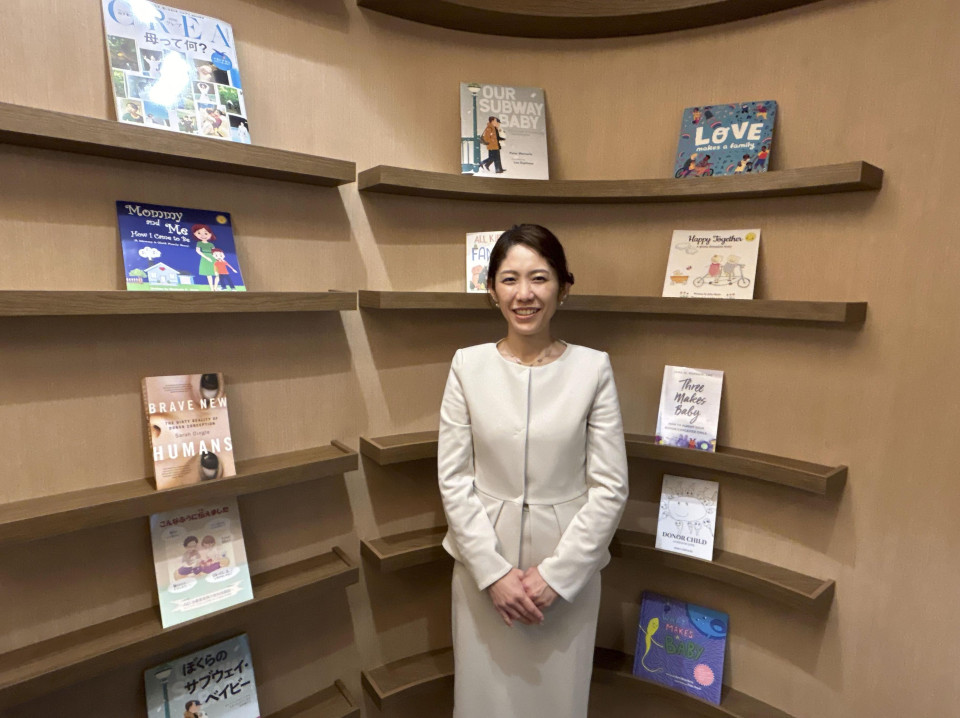A sperm bank only for donors who agree to disclose their identity will be set up at a Tokyo clinic, its organizer said Thursday, in a first for Japan.
Hiromi Ito, who counsels on infertility, said she hopes "to create a society where parents can openly tell their children the facts about their births" through the sperm bank at Private Care Clinic Tokyo.
Currently, sperm donations in the country are carried out almost exclusively on an anonymous basis.

Ito, who gave birth to two children through donated sperm, said she aims to start the bank by the end of this year.
In Japan, artificial insemination using donated sperm began in 1948, with over 10,000 people believed to have been born through the method. Currently, 16 medical institutions are registered with the Japan Society of Obstetrics and Gynecology to perform the assisted procedure.
But many facilities have suspended their services as an increased number of people have become wary of offering sperm amid a global move in recent years to recognize children's rights to know their biological parents.
Ito said she fears that the decrease in certified services for sperm donations has pushed parents into seeking other ways to receive sperm, for example by resorting to social media, which could lead to high-risk transactions with individuals.
The planned sperm bank will not only be safe for users but will "respond online so that interested parties can use it regardless of where they live," Ito said.
Through its official website, the clinic will solicit men aged 20 to 45 and then select donors based on sperm function tests and whether they have sexually transmitted infections.
The donated sperm will be frozen at the clinic and stored along with personal information about the donors. As the clinic does not have an obstetrics and gynecology department, it will send the frozen sperm to facilities registered with the Japan Society of Obstetrics and Gynecology to perform the artificial insemination.
The clinic will charge around 70,000 yen ($449) for one course of artificial insemination to cover testing, storage and other fees.
"In Japan, medical institutions have requested confidentiality from (sperm) donors and recipients and the procedure has been treated as something to feel guilty about," Ito said.
She stressed the importance of notifying children born through donated sperm at an early stage about the circumstances of their birth, saying unexpected discovery of the truth later on can be deeply shocking.
Ito, whose husband was diagnosed with azoospermia soon after marriage, once thought of a life without children. But she later reconsidered and decided to try artificial insemination through donated sperm after her husband said he wanted to raise a child who was at least biologically connected to his wife.
Ito said she has told her children using picture books that a "kind person" helped in their births.
"If the right to know the origin of one's birth is guaranteed, a parent can be confident in telling them about the facts," she said.
Related coverage:
Japan hospital denies LGBT woman support for IVF pregnancy
Japan gov't plans to require firms to set paternity leave targets
FEATURE: Manga bringing realities of fertility treatment to mass audience










